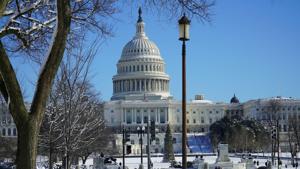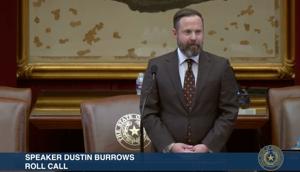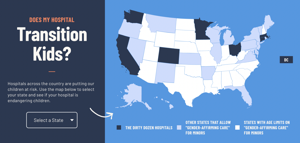Congress returns, but Trump’s ‘pocket rescissions’ snarls govt funding process
It’s Congress’ first day back in session, but President Donald Trump’s clawback of nearly $5 billion in congressionally-approved spending has alienated Democrats, whose cooperation is crucial to avert a government shutdown.
Lawmakers have until Sept. 30 – the end of fiscal year 2025 – to pass all 12 annual appropriations bills that provide funding for federal agencies to spend on programs. If lawmakers do not pass all 12 in some form through both chambers of Congress, they risk a government shutdown.
So far, not a single appropriations bill has received approval from both chambers. Only two appropriations bills have passed the House, while a three-bill minibus passed the Senate right before lawmakers recessed.
The chambers also disagree on funding levels for different agencies, a major problem given that they must eventually approve identical bills. And while Senate Republicans have worked bipartisanly, House Republicans have largely disregarded Democrats.
Trump’s decision Friday to cancel $4.9 billion in foreign aid using the Impoundment Control Act further cemented Democrats’ resentment. Senate Minority Leader Chuck Schumer, D-N.Y., accused Republicans in his Tuesday letter to colleagues of “once again threatening to go-at-it-alone—heading our country towards a shutdown.”
He further warned that the “only way to avoid a shutdown is to work in a bipartisan way, with a bill that can get both Republican and Democratic votes in the Senate.”
Neither party wants to take the blame for a government shutdown, but even if lawmakers immediately put aside their differences, they no longer have time to pass all 12 appropriations bills. Congress does not even have the full remaining 28 days to finish the process, given that lawmakers will recess the week of Sept. 22 for the Rosh Hashanah holiday.
At this point, lawmakers’ only option to keep the government open past Sept. 30 is to pass yet another Continuing Resolution, the fourth time Congress will have punted on funding the government properly. Lawmakers never passed a fiscal year 2025 budget, instead passing three consecutive CRs to keep the previous year’s funding on cruise control until Sept. 30.
Depending on how many appropriations bills pass both chambers before the shutdown deadline – for example, the House could approve the Senate’s minibus – the CR could apply to the remaining federal agencies, rather than extending current funding levels across the entire federal government.
Another question is how long a CR would last. Republicans would find a shorter, perhaps month-long CR much more palatable than a year-long extension. Some lawmakers, like Rep. Thomas Massie, R-Ky., have already pledged to oppose any kind of CR.
Latest News Stories

Derailment disrupts train service for Chicago, New York, Washington, Miami

Senate pledges economic support for Russia-Ukraine deal as govt funding talks stall

Democratic candidates focus on national politics in campaign for U.S. Senate

Arizona Chamber praises new interstate natural gas pipeline

Dems oppose Trump’s bid to end mail-in ballots, voting machines

After two weeks fleeing Texas, House Democrats return, quorum reached

Trump says court’s tariff decision could lead to ‘catastrophic’ collapse

Trump: Zelenskyy could end Russia-Ukraine war ‘if he wants to’

$750 million facility to protect Texas cattle, wildlife from screwworm threat

Chicago posts fewest homicides since 2016, arrests rate also declines

Three years later, Inflation Reduction Act blamed for higher Medicare costs

Illinois quick hits: Prosecutors charge two more in Tren de Aragua case; Senate Energy and Public Utilities Committee meets today; Illinois Little League team loses in World Series









